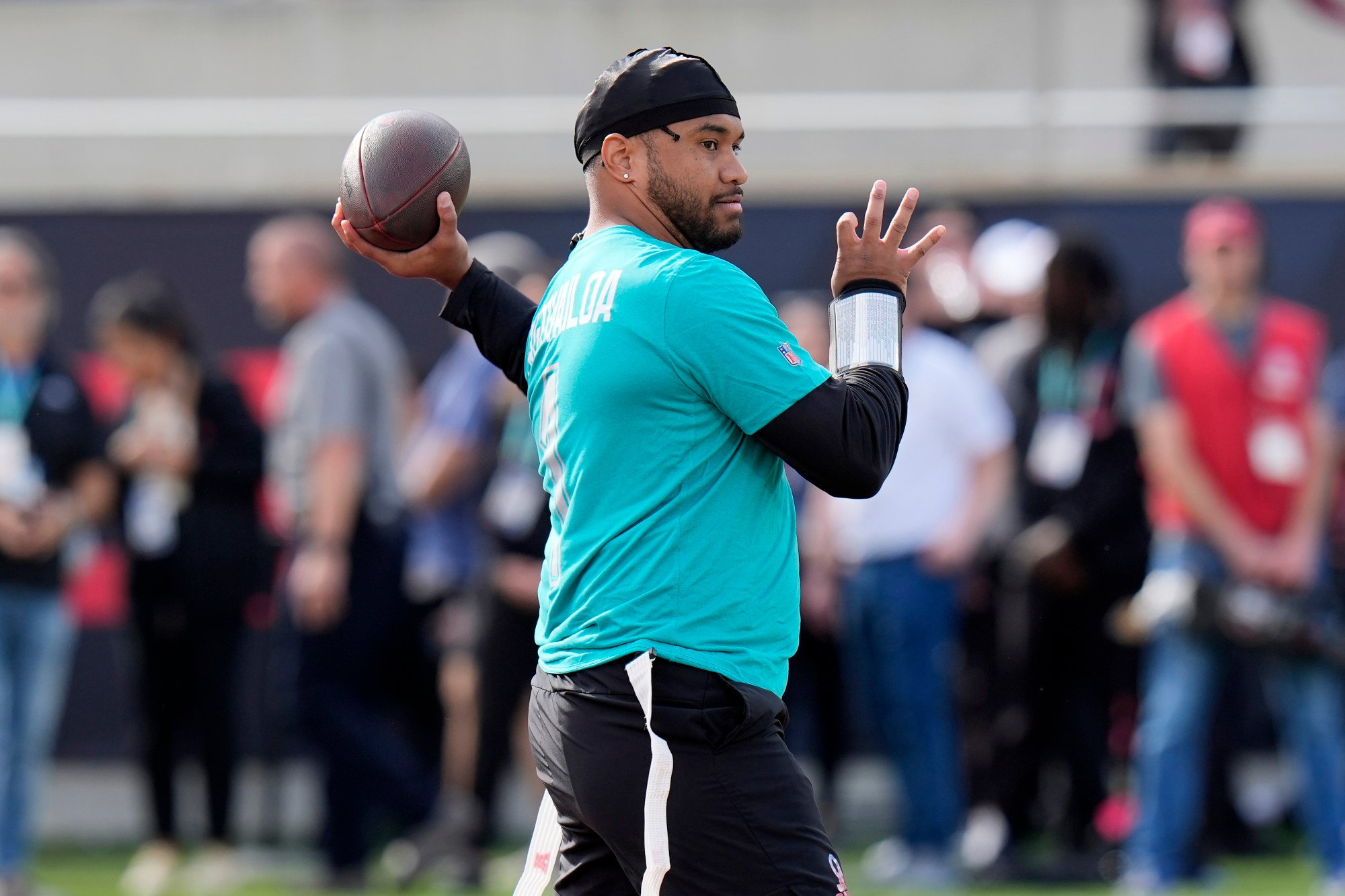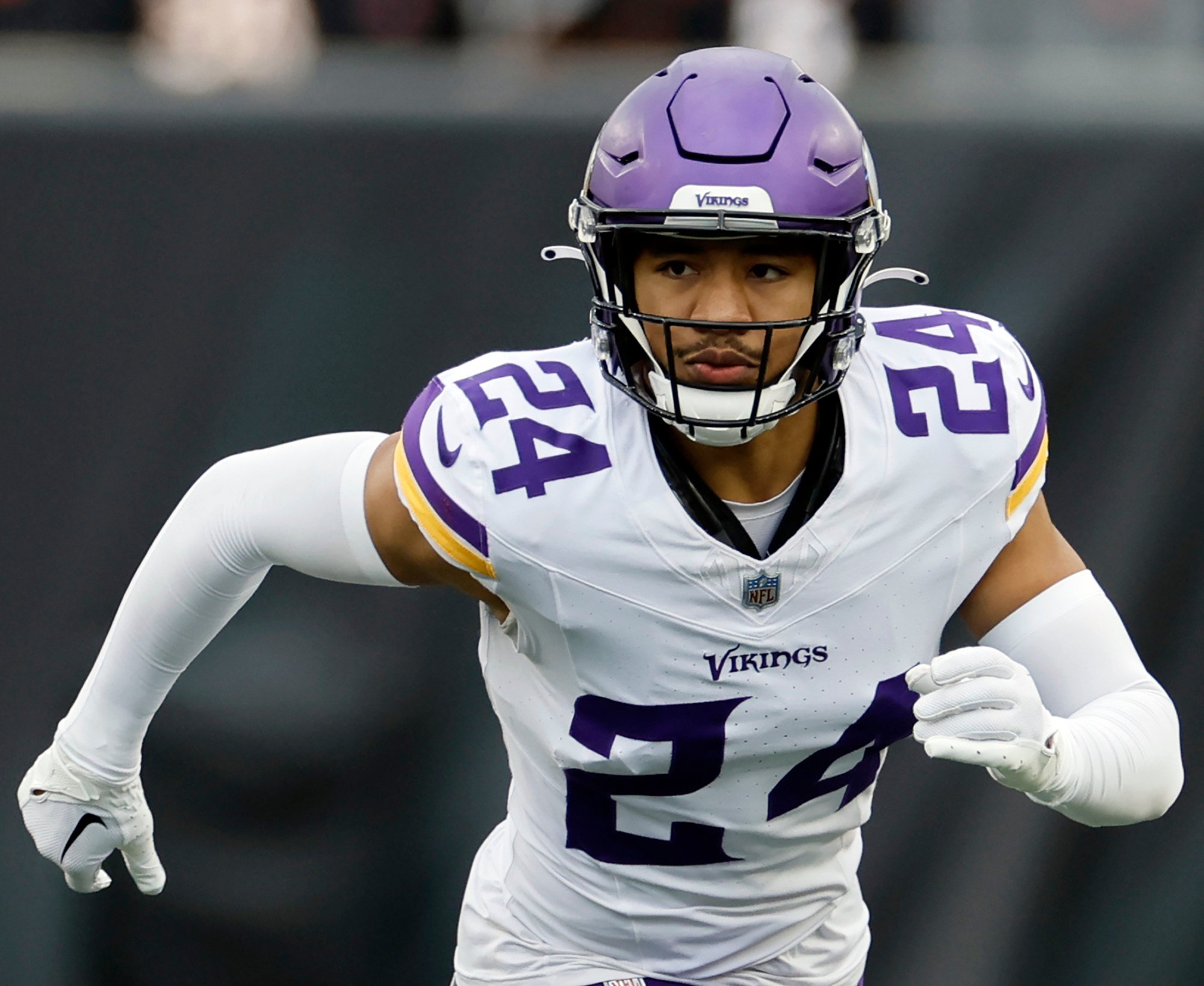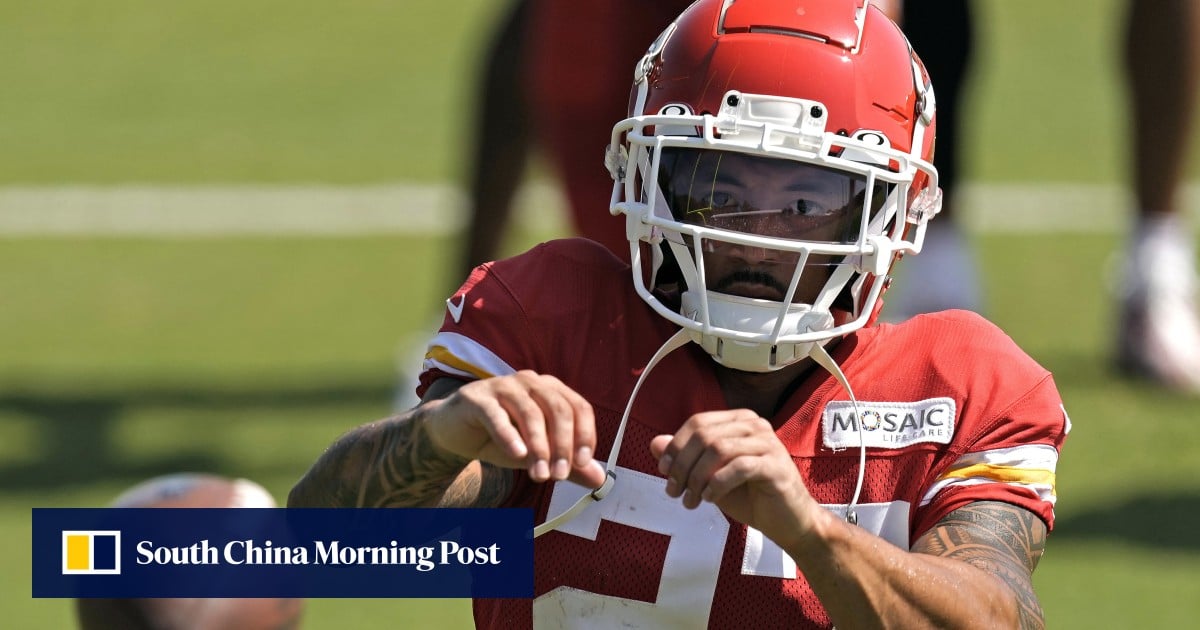Representation, he said, is more valuable than money or any material objects.
Remigio has been on his team’s reserve/injured list since August and makes a much-anticipated return to the field this weekend.
Historically, Asian Americans have been stereotyped as more brains than brawn or treated as foreigners in US sports. But for nearly a century, they have had a presence on the NFL field.
And for decades, football has been a mainstay in Native Hawaiian and Pacific Islander communities – yielding a fair share of star athletes.
Many current and former athletes of AAPI heritage agreed that such misconceptions have mostly faded. Increasingly, major athletes have been able to amplify their culture on a public stage and be embraced.
The League sent a similar message earlier this week in Las Vegas when the NFL and the Las Vegas Super Bowl LVIII Host Committee recruited more than 15 Asian-American, Native Hawaiian and Pacific Islander organisations, including The Asian-American Foundation, to put on an inaugural Lunar New Year Night Market for media.
Manumalo Muasau, a New York Giants linebacker for two seasons starting in 2012, was among those at the Night Market. The 33-year-old now serves as a mental performance consultant for the Tennessee Titans and for private clients.

He grew up admiring Pittsburgh Steelers safety Troy Polamalu, a fellow Samoan American who had long locks like him. Now, he happily watches young pros like Miami Dolphins quarterback Tua Tagovailoa honouring his Polynesian heritage in a way players before him were likely unable to.
“When they’re walking into the locker room and all the media’s there … for Tua, he’s in the Samoan community and the cultural attire is an ie faitaga,” Muasau said, referring to a formal, rectangular cloth worn like a kilt or wraparound skirt. “So he’s displaying his culture during that pregame game day fit.”
For most of his life, Muasau went by his middle name Jake because he thought it sounded more “American” and was easier for people to say. But in 2017, he decided to embrace his full name.
“That’s an experience that many of our AAPI communities can also relate to,” Muasau said. “My first couple of years in graduate school, when I was learning to really reintegrate my Samoan identity, part of that transition for me was introducing myself as my first name.”
Growing up Asian and black American or “Blasian” in Orange County, California, Remigio didn’t feel a sense of belonging. His neighbours and classmates were mostly white; he was called racial slurs and often questioned about his hair and skin colour.
Taylor Swift can fly from Tokyo to boyfriend’s NFL game on time: Japan embassy
Taylor Swift can fly from Tokyo to boyfriend’s NFL game on time: Japan embassy
As an adult, he understands that that behaviour isn’t about him.
“They’re probably dealing with more difficulties than they’re putting off, which is why they’re acting that way,” Remigio said. “Just people in general who act like that, I don’t really give them my time of day.”
The relationship between AAPI people and a lot of Western sports dates back to colonialism in Hawaii, the Philippines and other parts of Asia, said Constancio Arnaldo Jnr, an assistant professor at the University of Nevada, Las Vegas.
Historically, in US sports, Asian-American men have been treated as outsiders and their masculinity questioned.
“Asian Americans have always in many ways used sports as a form of American belonging, as a form of identity,” Arnaldo said. “When we think about race, it’s very much along black and white lines. Asian Americans are always kind of troubling and in this liminal space of a black-white binary, even in sports.”
Arnaldo, who co-edited the book Asian-American Sporting Cultures, said it makes business sense for the NFL to try to appeal to Asian-American spectators. Football has long been a source of pride across Polynesian communities including Samoans to Tongans.
“The NBA and Major League Baseball, they actually have dedicated Filipino heritage nights,” Arnaldo said.

With expanded representation though, anti-Asian racism still lingers. In 2021, former player and assistant coach Eugene Chung said he was told in an interview for a coaching job that Asian Americans were “not the right minority” to lead the NFL, even though the league’s policy recognises them as a marginalised group.
The Korean American, who was only the third Asian pro athlete at the start of his career in the 1990s, accused the NFL of brushing him off.
In the NFL’s next season, there will be nine coaches of colour, the most in the league’s history. But none of them are Asian or Pacific Islander.
According to the 2023 racial and gender report card from The Institute for Diversity and Ethics In Sport, two-thirds of all NFL players (66.7 per cent) are minorities, 53.5 per cent of whom are black. Native Hawaiians and other Pacific Islanders are only 1.8 per cent of players, a slight increase from 1.5 per cent in 2022. Asian players only represented 0.1 per cent.
There are at least two dozen NFL players of Asian or Pacific Islander descent, according to AMAZN HQ, an online hub curating news on Asians and Asian Americans in sports. Among them is Atlanta Falcons place-kicker and South Korea-born Younghoe Koo and Minnesota Vikings safety Camryn Bynum, who, like Remigio, is both black and Filipino. The two men were teammates at California in Berkeley.
When it comes to cultural pride, Bynum has worn his heart, and a Philippines flag decal, on his sleeve. He has called his home country “the best place in the world.”
Fans were rooting for his wife when she finally obtained a visa in November to travel to the US from the Philippines. On Instagram he posted a video of himself bringing home-made chicken adobo, lumpia and other Filipino foods to his teammates’ homes.


